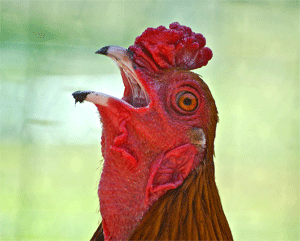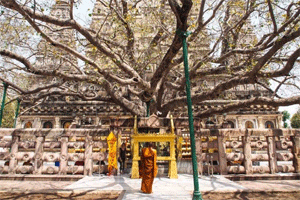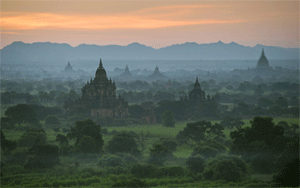
The 19th Century German Orientalist Max Muller is credited with choosing the English word “enlightenment” to translate “bodhi” when he published the Sacred Books of the East, a 50-volume set, from 1879 - 1910. The Sacred Books of the East “has become a landmark in the … study of religion and language [and] contributed significantly to the Western perception of the ‘religious’ or even ‘mystic’ East…” In Muller’s day, the Enlightenment had delivered Europe into a new world where the nightmares of the Inquisition had been put to rest, and the adventure of scientific discovery had become part of everyday life. Muller, and many other European philosophers, like Schopenhauer, saw the Buddha as an ally in the European struggle to overthrow the Catholic empire of faith using the tools of reason. Skeptical European thinkers, Schopenhauer in particular, embraced Buddhist thought as a “religion of reason”. So Europeans, having just seen their culture lift itself out of the imposed darkness of the Middle Ages, their eyes each day wakening to the discovery of new marvels in the natural world, were not surprised to discover that in the ancient East, the Buddha had used the power of reason to illuminate the mystery of human existence itself. This discovery surely merited the use of the term, “enlightenment.”
A problem for English-speaking Buddhists arises from the use of this word, however, because “enlightenment” connotes instantaneous achievement of total understanding. As people who have grown up with electric light, we have greater control over electrons than any prior generation of humans, and when we flip a light switch, we expect instant illumination to follow. This is quite a different picture from the one I get when I think about “awakening” because “the cock crowed,” and the light of dawn is brightening the sky over the eastern shore of the Ganges.

You will recall that the Buddha “awakened” when he saw the morning star after spending the night under a fig tree (Ficus Religiosa) that is now called the Bodhi Tree. Since he was in India, it is quite likely he also heard some roosters crowing.

My lama, Gyatrul Rinpoche, was fond of the American term “push-button,” which he pronounced “poojsh-botton,” while extending his index finger. Americans, he observed, are accustomed to getting results at the push of a button. Unfortunately, he informed us on many occasions, Buddhist practice doesn’t work that way. “Slowly, slowly,” he would often say, is the way to change the direction of the mind. Dramatic changes were not what he was hoping to see in his students. He counseled steady effort in the right direction.
Self-development, however, is an important project for those who become dedicated to it, and the most popular paths seem to be the quick ones. We want weekend intensives, life-changing seminars, short practices that accomplish miracle results. We also tend to view our mental dissatisfaction as the consequence of some type of pathology that needs to be rooted out. When I was young, we had a whole spate of quick-and-pricey paths to liberation. We had “rebirthing,” where therapists simulate a better birth than we got in the stainless-steel birthing room where many of us were obstetrified into existence. We had Arthur Janov’s “primal scream,” where people found that nugget of agony and wrenched it out with a spasm of relief. We had Erhard Seminars Training (EST), where three days of abuse would produce a lifetime of release. We have Rolfing, Holotropic Breathwork, and endless other therapies, including boring old Freudian and Jungian psychotherapies, focused on getting to the heart of your pain and releasing it. It might be fair to say that, as a people, we worship catharsis, and impute tremendous benefit to the release of past trauma.
Buddhist practitioners laboring under the belief that they are going to “achieve enlightenment” adopt a similar strategy for finding life-fulfillment through meditation. They are hoping for “insight” into their problems, a “samadhi” that will leave them cleansed of anxiety, a “satori” that will unveil the truth, a “kensho” that will reveal their “original face.” Perhaps they hope for something really big, a “turning about at the deepest seat of consciousness,” as Alan Watts was fond of chattering about. However they put it, they are looking for a “new self” to take the place of the old one that causes all of their problems.
Would it be heretical to suggest that this is not what the Buddha had in mind when he taught the Eightfold Path to Bodhi?
